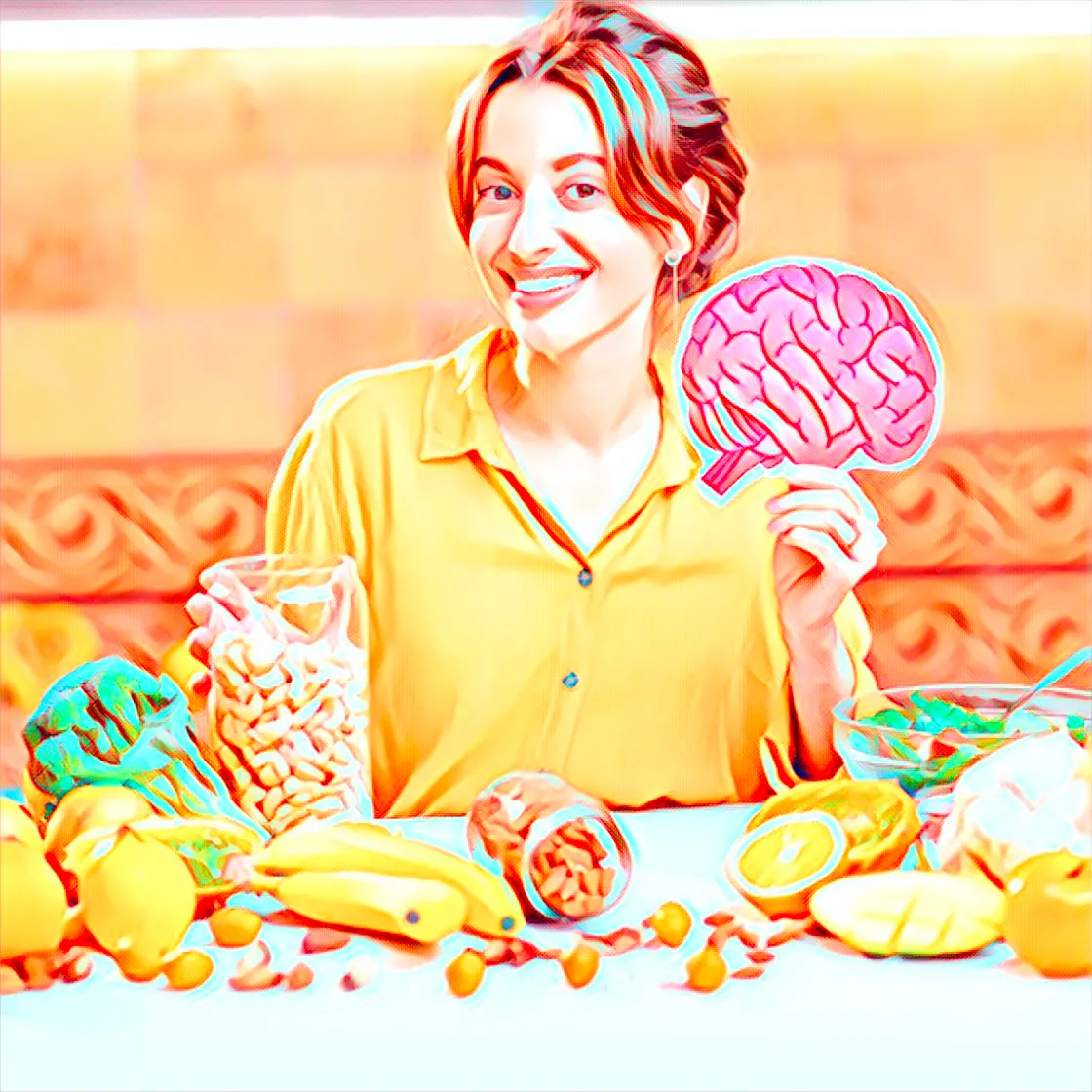Brain Boost
One cannot think well, love well, sleep well, if one has not dined well.
- Virginia Woolf

Brain Boost
May is Mental Health Awareness month, and while many people will bring attention to the importance of getting help via therapy, counseling, and prescription drugs, one important aspect seems to go under the radar...the significance of proper nutrition. Nutrition plays a vital role in mental health, but only in the last 20 years has this become a more heavily researched topic in the psychology and health-science world.
After mountains of test studies and observations, psychologists and scientists alike, discovered an undeniable link to mental health and nutrition, and thus, Nutritional Psychology (NP) was born.NP is the study of nutrition and how it pertains to mood, behavior, and mental health.
Nutritional Psychologists look at the ways food influences psychological, behavioral, cognitive, perceptual, sensory, and psychosocial patterns. The goal of this particular area of study is to implement education and nutrition to connect diet with mental health. NP gives mental health professionals another important piece of a puzzle in supporting their clients’ well-being by helping them understand how and why they should use food as a tool to improve the way they feel.
The connection between proper nutrition and neurological development starts very early in life. In fact, studies have shown that protein and omega-3 fatty acids, especially taken during the second and third trimester of pregnancy act as critical building blocks for fetal brain, neurological and retina development. Fetal brain growth is at its peak in the second half of pregnancy, and the rate of growth continues during the first year of life and on for the next several years.
Remember what Mom used to say about eating all of your fish and vegetables because they’re good for you? Well, apparently she wasn’t just being mean, she was trying to keep your brain functioning at peak performance!
If you or a loved one are suffering from mental illness it’s important, first and foremost, to speak to a trusted family member, friend, pastor, teacher, counselor, psychiatrist, or physician. For many people, this is incredibly helpful and relieves a lot of stress, anxiety, depression and misdirection, but sometimes the solution lies in responding to a physical need more than an emotional one.
A physician or naturopathic doctor can check for hormone imbalances as well as vitamin deficiencies through simple blood work. They can determine from there, if more testing needs to be done.
Most Nutritional Psychologists will agree that avoiding these foods on a regular basis may help with mental health issues such as depression, anxiety and memory loss: refined sugar, artificial sweeteners, alcohol, hydrogenated oil, energy drinks, and processed foods.
NPs will also agree that the following foods can be very beneficial for brain function: Green, leafy vegetables, such as kale, spinach, and broccoli (these are loaded with brain boosting nutrients like vitamin K, lutein, folate and beta carotene), and next on the list is fatty fish, such as salmon, cod, tuna and pollack (these contain omega-3 fatty acids which are great for combating Alzheimer’s disease). If you’re not a fan of fish, flaxseeds, avocados and walnuts are another source for omega-3s. Berries, such as strawberries and blueberries, contain flavonoids, which have been known to help with memory.
And many will be happy to know that studies have shown that caffeinated tea and coffee, in limited quantities, can actually help boost short-term concentration and memory.
Spices, like turmeric, fermented foods and dark chocolate are also very beneficial for brain health.
So the next time you’re feeling a little “off” mentally, it may help to take a closer look at your daily food consumption and ask yourself...do I need a nutritional brain boost?
Let food be thy medicine and medicine be thy food.
- Hippocrates
Copyright © 2022 by Created 4 Wellness. All rights reserved.
This site is not a part of the Youtube website or Youtube Inc. Additionally, This site is NOT endorsed by Youtube in any way. YOUTUBE is a trademark of YOUTUBE, Inc.
